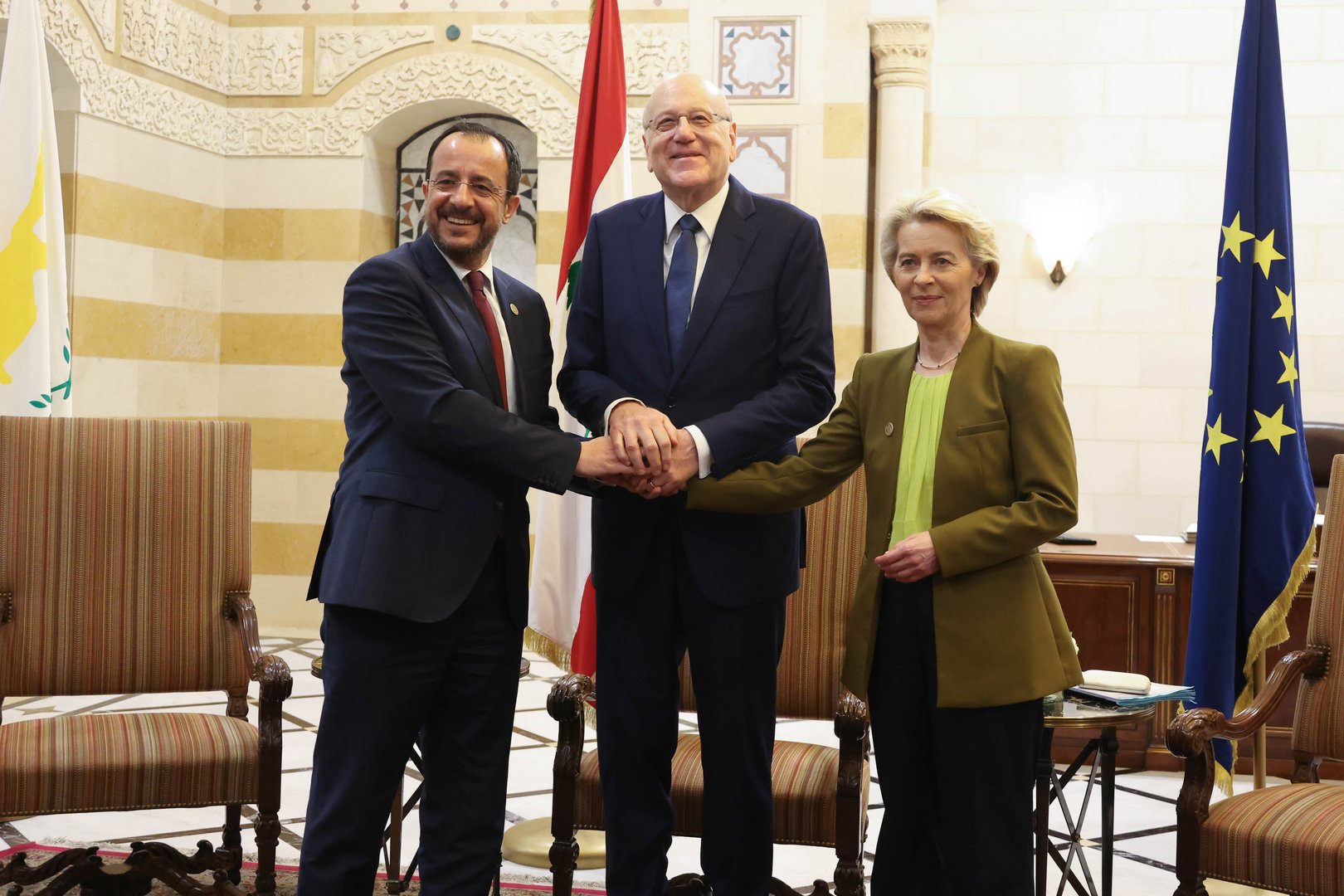President Nikos Christodoulides can always be relied on to present events in the most positive way imaginable. Describing Thursday’s visit to Lebanon with the President of the European Commission Ursula von der Leyen, as a “historic day” was an example of this approach. Apart from being very important, in terms of substance, the announcements were also important in “terms of symbolism” as this was the first visit of a president of the European Commission to Lebanon.
Neither von der Leyen nor the Prime Minister of Lebanon, Najib Mikati tried to read any symbolism or historic significance into Thursday’s meeting, which primarily was aimed at securing assurances that Lebanon’s government would try to keep Syrian refugees in the country. Financial aid was offered to Lebanon’s cash-strapped government in exchange for controlling migration.
Von der Leyen announced a financial package of €1 billion over the next three years, saying the EU wanted to strengthen Lebanon politically and economically to secure the stability of the country. The EU wanted to contribute to the socioeconomic stability of Lebanon, through the backing of basic services such as education, social protection and health, she said.
She also mentioned the real point of the visit, saying the EU was “relying on your (Lebanese government’s) good cooperation for the prevention of illegal migration and the tackling of the trafficking of migrants.” A good part of the aid would go towards strengthening the Lebanese army so it could deal with illegal migration.
It is questionable whether €330 million a year over the next three years would help Lebanon improve basic services, strengthen it politically and economically and also strengthen the Lebanese army to deal with migration. Christodoulides, however, was in no doubt, stating that “today we are taking a significant step in making Lebanon stronger.” Cyprus had been one of the “strongest supporters of further strengthening EU-Lebanon relations and today I am pleased this is moving substantively.”
Mikati was less optimistic, reminding his visitors that Lebanon had been turned into an “alternative country” for Syrians and urged the EU to come up with a “radical” solution urgently. In a diplomatic way, Lebanon’s PM, probably angling for bigger financial assistance, said that the issue was bigger than the arrival of Syrians migrants to Cyprus. If the Syrian refugees in Lebanon (there are 1.5 million, the biggest number in the world as proportion of the country’s population) was not properly dealt with, the consequences would not be confined to his country but reach Europe. Lebanon’s security was that of Europe as well, he said.
It was quite clear that while the offer of help from the EU would be welcomed, the Lebanese government expects more. This is understandable, considering Lebanon is hosting 1.5 million refugees from Syria, and is unlikely to allocate precious resources to stopping the arrival of a few hundred of them to Cyprus every week, because of the financial assistance it will receive from the EU. Despite the optimistic declarations in Lebanon, it is doubtful the understanding reached would have the desired results. The government might need to persist with the infamous pushbacks.







Click here to change your cookie preferences